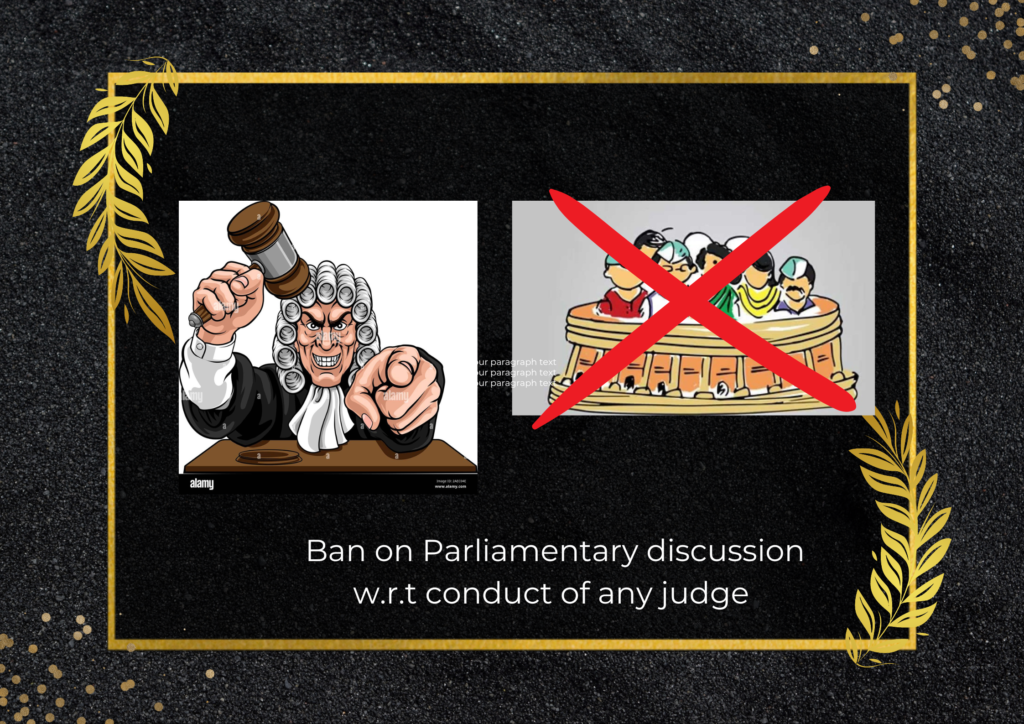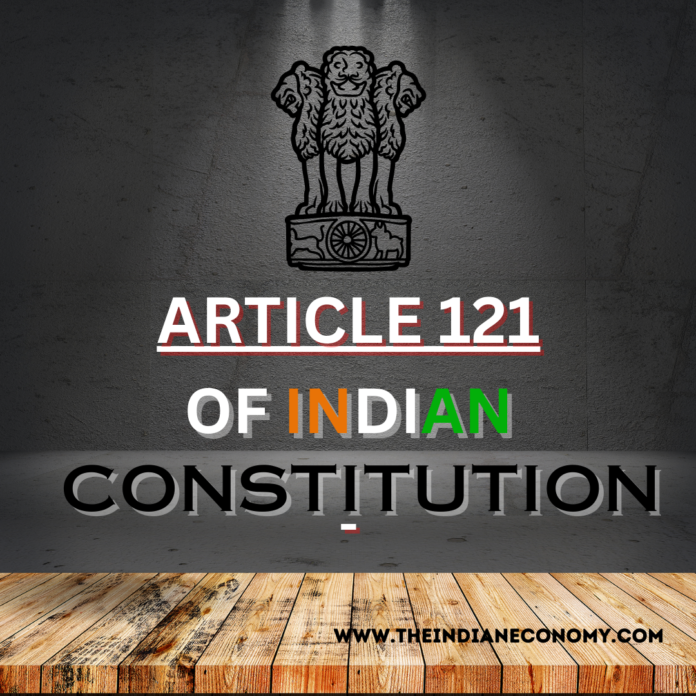Article 121 of the Indian Constitution serves as a sentinel guarding against the encroachment of parliamentary discussions into the realm of matters that fall under the purview of the judiciary. This pivotal article places a ban on parliamentary debates or discussions that concern any pending legal cases or legal proceedings. By doing so, Article 121 safeguards the integrity of the judicial process from undue influence and prevents the erosion of the separation of powers between the legislature and the judiciary
What does Article 121 states ?
Restriction on discussion in Parliament
- No discussions shall take place in Parliament with respect to the conduct of any Judge of the Supreme Court or of a High Court in the discharge of his duties expect upon a motion for presenting an address to the President praying for the removal of the Judge as hereinafter provided

Limitations provided by Article 121
| Aspect | Details |
|---|---|
| Scope of Discussion | No discussion shall take place in Parliament about the conduct of judges of the Supreme Court or High Courts in the discharge of their duties. |
| Applies to Both Houses | The restriction is applicable to both houses of Parliament: the Lok Sabha and the Rajya Sabha. |
| Exception for Removal Motion | Discussions can occur only if a motion is presented for the removal of a judge through an address to the President of India. |
| Judicial Accountability Process | Article 121 does not make judges immune to accountability. It establishes a constitutional process for addressing misconduct or incapacity through the removal motion. |
The Foundation of Separation of Powers
At the heart of a functional democracy lies the doctrine of separation of powers, a principle that safeguards against the concentration of authority in a single entity. Article 121 embodies this principle by preventing the legislature from interfering in matters that are the exclusive domain of the judiciary. By imposing a ban on parliamentary discussions concerning pending legal cases, this provision shields the judicial process from external pressures, allowing it to unfold with impartiality and integrity.
Maintaining Judicial Independence
Judicial independence is a cornerstone of any thriving democracy, ensuring that the courts remain impartial and free from undue influence. Article 121 serves as a crucial guardian of this independence by preventing the legislature from intervening in ongoing legal proceedings. This prohibition shields judges from potential pressures, ensuring that their decisions are based solely on the merits of the case and the application of law, rather than the sway of political discourse.
